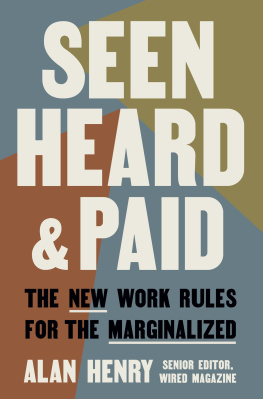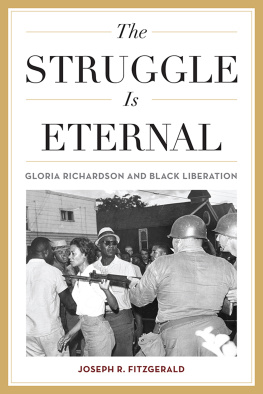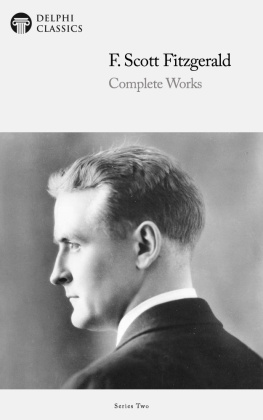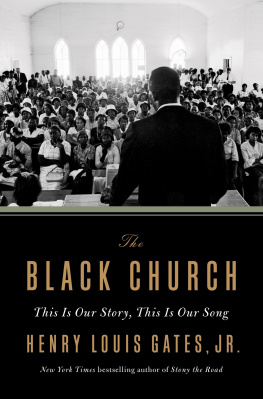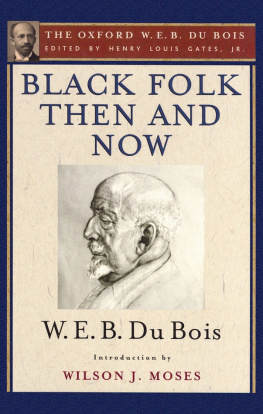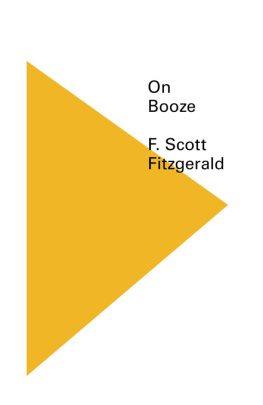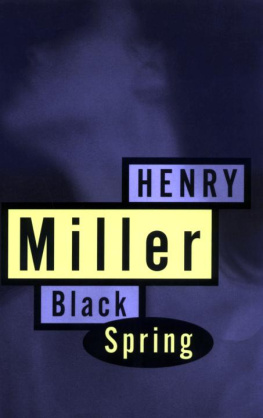Henry Fitzgerald Heard - The Black Fox
Here you can read online Henry Fitzgerald Heard - The Black Fox full text of the book (entire story) in english for free. Download pdf and epub, get meaning, cover and reviews about this ebook. year: 1951, publisher: New York: Harper & Brothers, Publishers,, genre: Detective and thriller. Description of the work, (preface) as well as reviews are available. Best literature library LitArk.com created for fans of good reading and offers a wide selection of genres:
Romance novel
Science fiction
Adventure
Detective
Science
History
Home and family
Prose
Art
Politics
Computer
Non-fiction
Religion
Business
Children
Humor
Choose a favorite category and find really read worthwhile books. Enjoy immersion in the world of imagination, feel the emotions of the characters or learn something new for yourself, make an fascinating discovery.

- Book:The Black Fox
- Author:
- Publisher:New York: Harper & Brothers, Publishers,
- Genre:
- Year:1951
- Rating:4 / 5
- Favourites:Add to favourites
- Your mark:
- 80
- 1
- 2
- 3
- 4
- 5
The Black Fox: summary, description and annotation
We offer to read an annotation, description, summary or preface (depends on what the author of the book "The Black Fox" wrote himself). If you haven't found the necessary information about the book — write in the comments, we will try to find it.
The Black Fox — read online for free the complete book (whole text) full work
Below is the text of the book, divided by pages. System saving the place of the last page read, allows you to conveniently read the book "The Black Fox" online for free, without having to search again every time where you left off. Put a bookmark, and you can go to the page where you finished reading at any time.
Font size:
Interval:
Bookmark:

THE BLACK FOX
Copyright, 1951, by Gerald Heard Printed in the United States of America
All rights in this book are reserved. No part of the book may be used or reproduced in any manner whatsoever without written permission except in the case of brief quotations embodied in critical articles and reviews. For information address Harper & Brothers, 49 East ssrd Street, New York 16, N, Y.
FIRST EDITION I-A
To J.M.B.
All the characters in this story are imaginary, save that of a British Prime Minister, dead nearly seventy years ago. Even the Islamic Itinerist is not historical, being only an ad hoc author who covers with equal enterprise hut slightly different outlook the journeys of the famous Abu-Abdallah Mohammed, surnamed ibn-Eatuta.
The Black Fox
CANON, YOU TOO ARE TAKING A TURN.
"Yes, My Lord, I thought I might make a little draught without adding to my own temperature."
"A nice art on a night like this!"
'Well, the air in my house seemed to have become another element or, shall I say, a gas non-luminous but of sufficient heat that one is surprised that it does not glow."
"A Miltonic notion of hell! But, really, I do not recall ever experiencing a more suffocating night. And were we not of what friend Trollope calls The Cloth, I'd wager that the atmosphere in my Palace is still more dense than that in your residence. You know what a wag once said of this environment The city is the sink of the countryside, the Close of the city and the Palace of the Close."
'We are certain to have a storm tonight?" queried the Canon.
The answer came in a sudden flicker on the blackness. The two speakers were silent listening. They even stopped their slow promenade. They had to wait for a considerable time, and then their ears in the stillness only just caught the growling confirmation that the flicker had been the reflection of a flash.
'Well, that shows." the Bishop's voice continued, "that it is still under the horizon. We shall have no relief for hours. I certainly shall not insult sleep by lying down under my leaden roof and asking it to accompany me. A turn or two here, and then, perhaps, if one sits somewhere in the Close a little rest may be won even if slumber cannot be wooed."
"Your prescription is so sound, may I follow you in your dispensing of it?"
Evidently assent was givenat least leave was not refused. For the two pairs of feet could be heard in slow step pacing out the flag-stones. The dark was not absolute for somewhere, outside the Cathedral Close gate, the faint light of street lamps made the upper stories of the surrounding houses appear like an almost transparent overpainting of grey against the sky's dense black. The two walkers could just tell that they were on the pavement and be aware of the form of the other looming alongside. It was probably this protective darkness, this intimacy and yet seclusion, even from each other, that gave the second speaker a certain boldness. They had made hardly more than half-a-dozen of their slow turns, when the Canon remarked,
'The Archdeacon's indisposition seems to have proved stubborn?"
The curious condition of the nightgiving, as it did, a double sense: of being alone, out in unobserved space and at the same time closeted in an intimate privacyhad evidently much the same effect on Bishop as on Canon. Bishop Bendwell was known to be what the Book of Common Prayer likes to callit is one of its highest terms of commendation"a discreet man." He knew how to mind his own business and to see that others respected that frontier. But now it seemed to him that there was no reason for not sharing what the Doctor had told him that noon. Accustomed to sleep well, to use most of the night for that useful if mysterious exercise and able to forget his dreams the moment he woke, such a man the more capable he is in the day, the more he should guard himself when awake in the night. For the night can enforce its rules even on those who feel that by wakeful watchfulness they can remain creatures only subject to the laws and reasons of the day.
"All too stubborn, I fear," he replied, And when the other asked, more definitely, "I trust his condition does not give rise to any alarm?" he repeated verbatim the Doctor's verdict, "He may linger for a couple of monthshe might still be alive at Adventbut that would be the limit."
"Poor man, poor man." Canon Simpkins' voice even in the day-time would not be expected to show more than courtesy condolence. The Archdeacon was almost overfull of years. There can't be preferment without predeceasement and after all there is heaven. Even purgatory, thought the Canon, has been conveniently removed from the spiritual prospect of Protestants. So there was not the slightest reason for not wishing the failing Archdeacon Travers bon voyage. Archdeacon Travers had enjoyed, even to that fourscore years which the Psalmist thought could only be "labour and sorrow," a nice taste for Greek, a fine library to sustain that taste, a considerable ear for music and an equally sober appreciation of port. Life had done him well at its huge and variously garnished board. He had had a good place. And most people felt that he had given as good as he got. "A thoroughly nice man," nice people had been saying about him for close on sixty years. They found little else to sayneither had even the not thoroughly nice. Yes, things had cancelled out quite well, and, welleveryone now felt, without impatience but with no wish for delay, that a thoroughly quiet death would be nicely in keeping with such a life.
The instep pairs of feet beat out another couple of turns before the Canon's voice closed the Travers' career with "A thoroughly nice man." The Bishop antiphoned and die Canon felt the chance had now come for the more intimate condolence that could lead to further confidence.
"The real burden falls on you. These choices must indeed be part of your heavy burden that you would most gladly lay aside!"
It was a bold thing to say, of course, but the unique conditions of the night seemed heaven sent. They also made his hearer's defences relax. Few people really object to being sympathized with. But, as with flattery, the object of it must be sure that he is not being fooled.
"There will be time to think it over," the Bishop replied warily. "Of course the Doctor may be rightperhaps we should presume it. But, after all, with men who have lived long and quietly, death seems to approach them with an equal patience. There's an old country saying 'Long in living, long in dying.' Here, in the Close, we have still another example of thatthe Dean. He certainly isn't dying, but like a clear evening sun he is declining. 'Sufficient unto the day...." He paused and then added, "But, you are right, these are the real burdens of high office."
"And," the voice beside him added, "with the highest quality of conscientiousness, the longer the choice has to be considered really the greater the strain."
The "True" with which this was allowed encouraged the Canon to venture a further test, "Especially when so many people will expect an appointment tihat one with really intimate knowledge might feel compelled to disappoint."
The footsteps became slower, then paused. The Bishop's dim large form was bent back. Apparently he was looking up at the wall of the house that skirted the footpath on which they were walking. "You are right," he finally conceded, having evidently decided to go on with the issue. His voice sank, "I must bind you to the strictest confidence. I have long suspected that you realized the situation which was bound to arise, sooner or later." He paused again. "Everyone will expect me to appoint Canon
Font size:
Interval:
Bookmark:
Similar books «The Black Fox»
Look at similar books to The Black Fox. We have selected literature similar in name and meaning in the hope of providing readers with more options to find new, interesting, not yet read works.
Discussion, reviews of the book The Black Fox and just readers' own opinions. Leave your comments, write what you think about the work, its meaning or the main characters. Specify what exactly you liked and what you didn't like, and why you think so.

